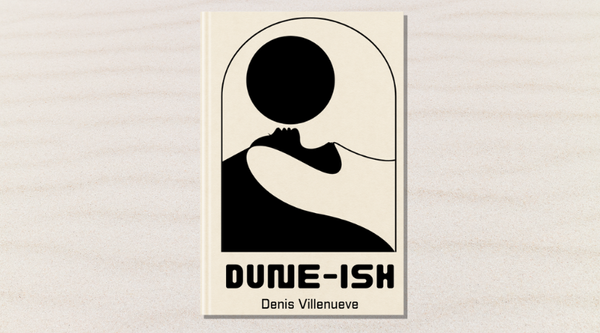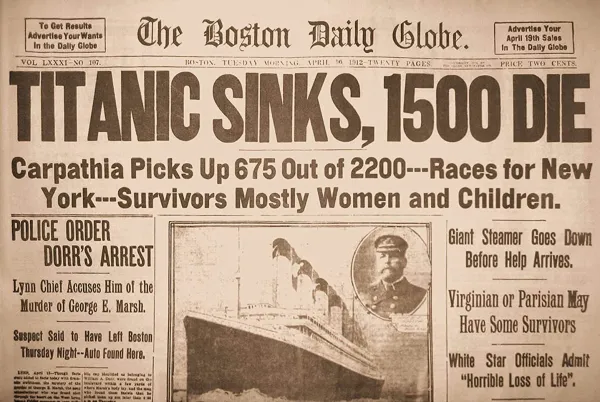This is a little bit of writing about war, Israel, Iran, Gaza and the United States. I want to note that the opening bit contains spoilers from Season 3 of Peaky Blinders. And yes! That season has been available to stream since 2016! But I have learned from hard experience that readers prefer spoiler alerts even when the story is old. I once had a reader get very upset that I spoiled the end of Persuasion. Honestly, outside of the mystery, I do not believe stories can be spoiled. Surprise isn’t the point of most stories! But I am in the minority in that view. So here is the spoiler alert! ALERT!!
Riley and I are watching Peaky Blinders ten years after everyone else. For the other two people in the world who haven’t seen this show, all you need to know is that it follows the post-WW1 exploits of the Peaky Blinders, a street gang that emerges from the soot-dusted streets of Birmhingham, England.
The Peaky Blinders are run by the Shelby family, who’ve historically survived on the other side of legality. The Shelbys live in England, but they do not a lot of the written and unwritten protections promised by the state. This is partially because of bigotry, the Shelbys have Irish Traveler and Romani ancestry.
The head of the Shelby family, Tommy Shelby, played by Cillian Murphy, is determined to get his family the power necessary to invoke the protection of their country. His family is Catholic, but Tommy believes in the promise of the State. (I have a sneaking suspicion he'll stop believing at some point, but still have 2.5 seasons to go.)
By season three, the Peaky Blinders control an enormous swathe of territory between Birmingham and London. They run a feudal system. Tommy Shelby is the Lord. His brothers, Arthur and John, and his Aunt Polly are his representatives. The pre-existing crime families who pledged loyalty to the Peaky Blinders are a kind of warrior nobility, granted vassalage.
In the second episode of the season, John Shelby meets with the head of the Changretta crime family. The meeting is supposed to still some seething tensions. Instead of calming eveerything down, John threatens Changretta’s adult son. Even loyal warrior nobles will go on the offense to protect their sons. John’s bloviating has sparked the possibility of a rebellion.
The Peaky Blinders are too stretched by circumstance to abide anything but peace. Arthur tells John to apologize. Aunt Polly tells John to compromise. Instead, John attacks Changretta’s son and cuts out his eyeball. This escalation horrifies Arthur and Polly. But Tommy Shelby approves. He says that neither apology nor compromise can keep peace,
“…the only way to guarantee peace is by making the prospect of war seem hopeless. If you apologize once, you do it again and again and again. Like taking bricks out of the wall of your fucking house. Do you want to bring the house down?”
And then he tells his brothers to firebomb two of Changretta’s pubs.
It was at this point that I yelped, “Escalation dominance!”
Riley, who is used to my mid-watch outbursts, paused the show,
“What?”
I sat up,
“Escalation dominance. That’s what Tommy advocates in this scene. I was reading about it this weekend. Herman Kahn was this post-WWII Rand think tank guy. He was obsessed with nuclear bombs in a very unsettling way. Dr. Strangelove was partially based on him! Men like to think their creations are inevitable. Kahn treated nuclear bombs the way people like Sam Altman treat LLMs.
Anyways. He came up with this theory called the ‘Ladder of Escalation,’ a framework for how nation-states escalate and de-escalate nuclear conflict. It had 44 rungs. The bottom rung was a Cold War. The top rung was Spasm/Insensate War which just means nuclear bombs being flung everywhere without thought or recourse.
In between those are rungs like, Political, Economic and Diplomatic Gestures, Show of Force, Formal Declaration of War and Civilian Devastation Attack. At every rung on the ladder, the nation-state is in some kind of binary conflict that will lead to escalation or de-escalation.
Also, the word “escalation,” with the meaning Kahn uses, comes from the 1950s! It means “raise” and implies being lifted. It was used in relation to nuclear war, initially. So he’s really removing agency from the escalation, you know? Which is just so….annoying.”
I paused to see if Riley was still listening. He was. He always lets me think out loud, which is so kind. But he also wanted to keep watching his show. He was still holding the clicker,* his finger pointedly on the ‘play’ button. So I sped up.
“Escalation dominance is also Kahn’s idea. He said that a nation-state can subjugate any rival if it has superior capacity across enough rungs. Basically, that rival will find it too costly to escalate. Kahn’s ideas have been really influential.
The problem with Kahn’s theories is that they assume that nation-states employ the same logic as some guy in a 1960s think-tank. They assume that all escalation is vertical. And they assume that escalation can stop escalation. Which is just…I don’t know…it’s not good physics or something. Escalation can only escalate. So Tommy,” and here I gestured toward Cillian Murphy paused in the doorframe, “is wrong. And now that he’s escalating, his peace is going to be broken - maybe permanently!
Escalation dominance is just climbing up into your own destruction! The writers are foreshadowing right now! Is this escalation’s escalation going to kill Tommy’s little boy?! I might have to stop watching this!”
Riley put down the clicker and said something like, “Okay, escalation dominance doesn’t work.” Then he asked if ice cream would help me finish the show. It seemed like it would. We started the show back up when he returned with ice cream.**
*do you say remote control or clicker?
**Jeni’s ice cream sandwich - key lime pie ice cream, graham cracker cookies, highly recommend
The escalation’s escalation did not kill Tommy’s little boy. It killed his beloved wife. She was shot to death by a Changretti hitman. He was aiming for Tommy but shot her in the heart instead. When the episode closed, all the bricks in Tommy’s walls remained, but his floors were covered in blood.

I’d been looking into escalation dominance because Iran had just launched a retaliatory missile strike against Israel.
Israel and Iran have been fighting a shadow war for a long time. On April 1st, Israel brought that war into the light - they attacked the Iranian embassy compound in Syria. High-ranking Iranian officials were killed. The attack seemed designed to pull Iran up the Ladder of Escalation.
After years in which both sides operated within the framework of a largely undeclared set of “rules”, Israel – as analysts have pointed out – bulldozed through every red line to attack a location that Tehran maintains was tantamount to attacking Iranian soil. - The Guardian
The New York Times called Iran’s response, drones fitted with missiles, “a highly choreographed spectacle.” It was meant to display force and displeasure without actually causing much harm. Iran's government wasn't being altruistic; they simply can't handle a ground war right now. By the end of the attack, 99% of the drones were shot down by Israel and its allies.
It's been very popular in the media to call Iran’s attack “unprecedented,” a word that was supposed to add weight to the seriousness of the escalation.
I am not denying the accuracy of the word. It was unprecedented! And heaven knows, I am very much not a fan of Iran's government. And I don't want them launching missiles against anyone, anywhere.
And.
I just would like to know why killing thousands of children in Gaza is not an unprecedented escalation, but a drone attack - that was designed to fail - is. Seems like proof the Ladder of Escalation has a manufacturing defect.
The day after the attack, the United States called for a restrained response. Many in the American media wrote that Israel needed to de-escalate. If Israel responded in kind, a regional war might erupt; America might not be able to stay out of it.
This confused me! Because surely, the regional war has already erupted. It began on October 7 when Hamas took hostages from Israel. And, of course, America is already heavily involved. Right?
But what do I know…I am just an autodidact who interrupts prestige TV shows with weird military strategy trivia. So it was somewhat validating to see Ken Klippenstein and Daniel Boguslaw make this same point in the Intercept,
“THE REGIONAL WAR in the Middle East now involves at least 16 different countries and includes the first strikes from Iranian territory on Israel, but the United States continues to insist that there is no broader war, hiding the extent of American military involvement.” - Intercept
And this regional war is not limited. It is what is known as a total war - the kind of war where civilian infrastructure, civilian resources, and civilians themselves are targeted. Over 30,000 Palestinians have been killed, mostly women and children. The White House is worried about the bricks in our walls while we’ve got the blood of Palestinian children on our floors.

When Herman Kahn published his Ladder of Escalation, many critics called it science fiction. And at the time, I guess it was. But it was also treated as a blueprint. We live in the reality Kahn and his ilk constructed. We are always being raised to and from war.
I’m not a Rand think tank guy, so I do not have a world-ordering framework to offer you in place of Kahn’s old one. But I do want to tell you about another ladder, if that’s all right?
Ladders are a very old technology—older even than bricks or floors. The oldest known depiction of a ladder is an 8,000-year-old cave painting in Spain.
In the painting, a woman* climbs a long, flexible ladder to reach a beehive nestled in the face of a cliff. She has a basket on her back and wild bees buzz around her head. She reaches one arm into the beehive, harvesting honeycomb and honey. In the painting, she stays suspended by the beehive.
*Someone titled this cave painting "The Man of Bicorp." Why not The Woman of Bicorp? No reason! So!
But in life, she filled her basket, climbed down the ladder, and carried the calorie-dense sweetness back to her people. She was able to do that because people before her constructed a reality with ladders that reach beehives. She lived in a world where sustenance was the object of her ascent and descent. And so she climbed to and from honey.
There was violence 8,000 years ago, of course. Humanity has never been mostly humane. This is not a call to better days. I think we have always just been…whatever it is we are. But when I consider the cave painting’s ladder, Kahn’s ladder feels less inevitable. We could reach other things, sweeter things, even now, if we could just change the object of our climb.








